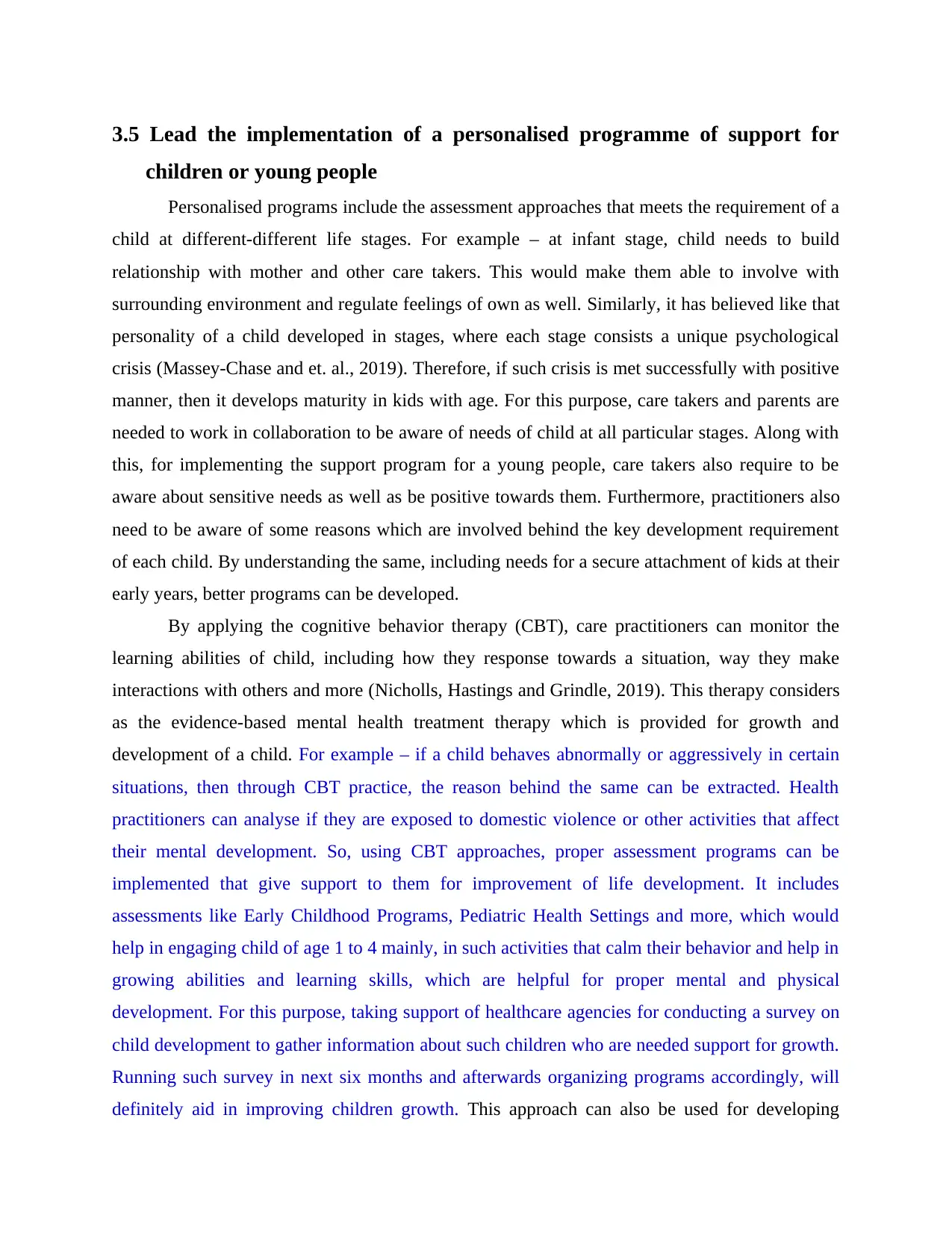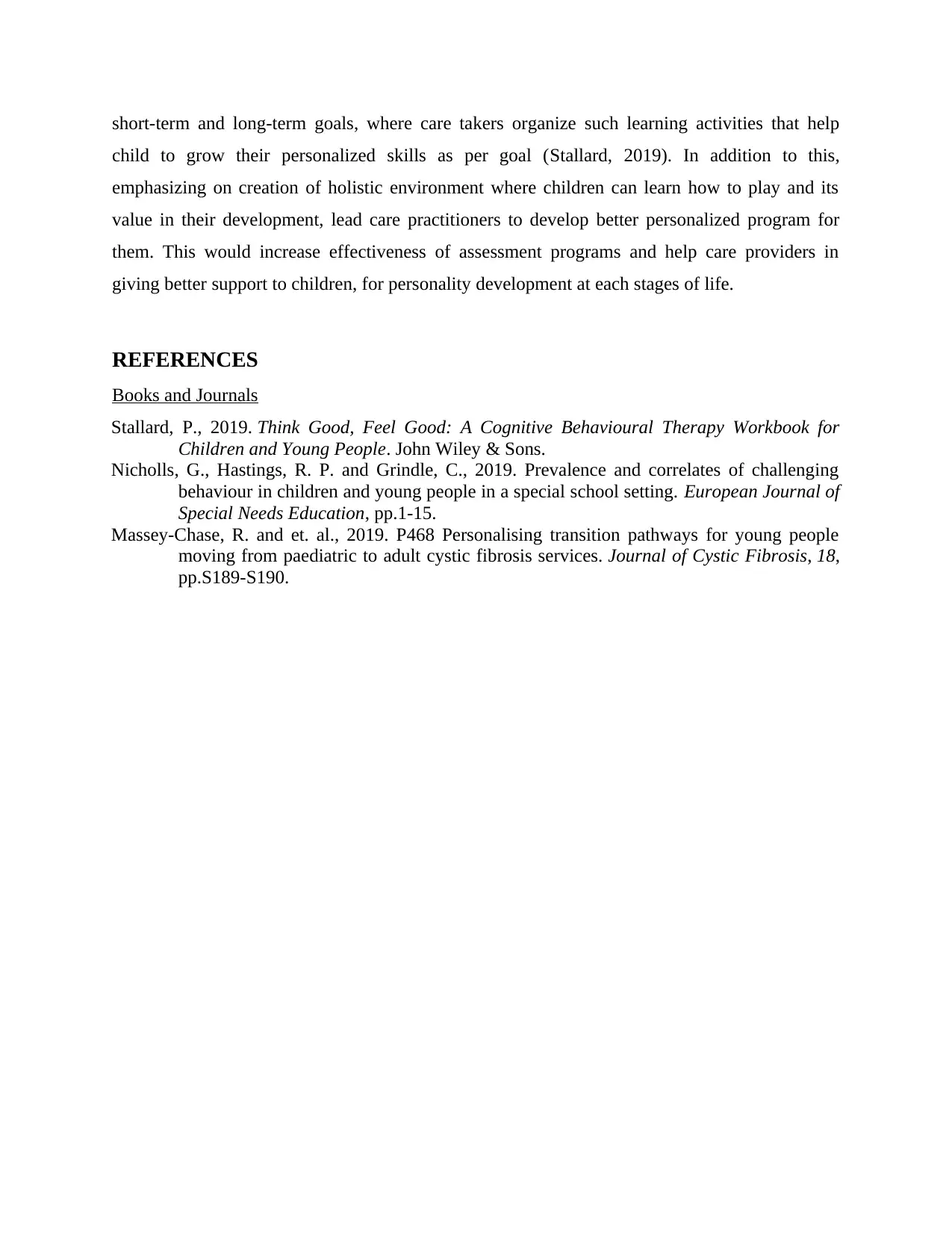Healthcare Report: Child Development Support Program Implementation
VerifiedAdded on 2023/01/19
|2
|678
|29
Report
AI Summary
This report focuses on the implementation of personalized support programs for children and young people. It emphasizes the importance of understanding a child's developmental stages and tailoring interventions accordingly. The report highlights the use of cognitive behavioral therapy (CBT) as an evidence-based approach to address behavioral issues and promote mental well-being. It discusses various assessment methods, including Early Childhood Programs and Pediatric Health Settings, to identify children needing support. The report also suggests conducting surveys and creating holistic environments to enhance program effectiveness. The goal is to provide comprehensive support for children's personality development at each stage of their lives, integrating healthcare and promoting a supportive environment for learning and growth. The report references several books and journals to support its claims and recommendations, including the works of Stallard (2019), Nicholls, Hastings, and Grindle (2019), and Massey-Chase et al. (2019).
1 out of 2








![[object Object]](/_next/static/media/star-bottom.7253800d.svg)